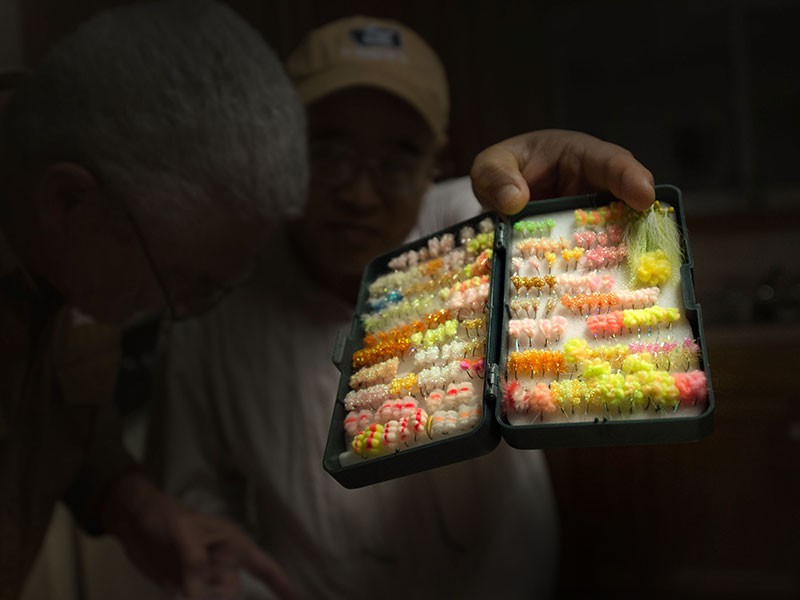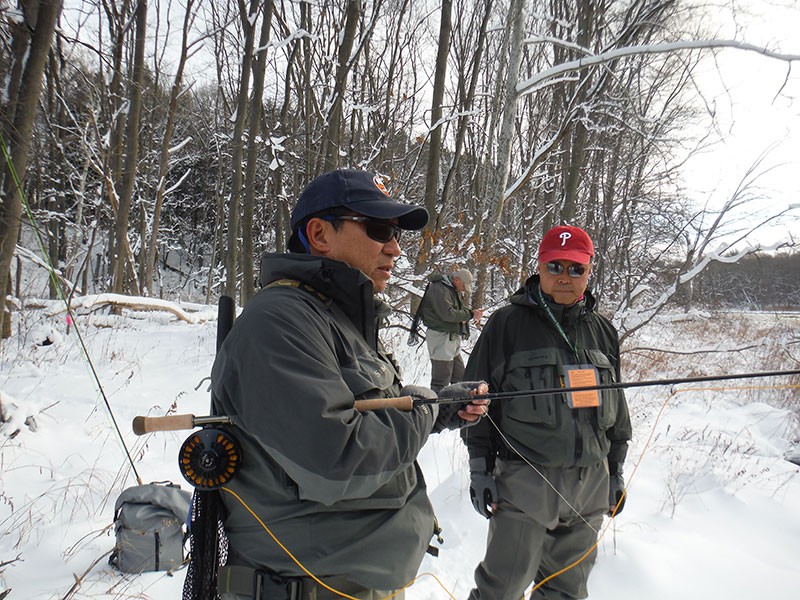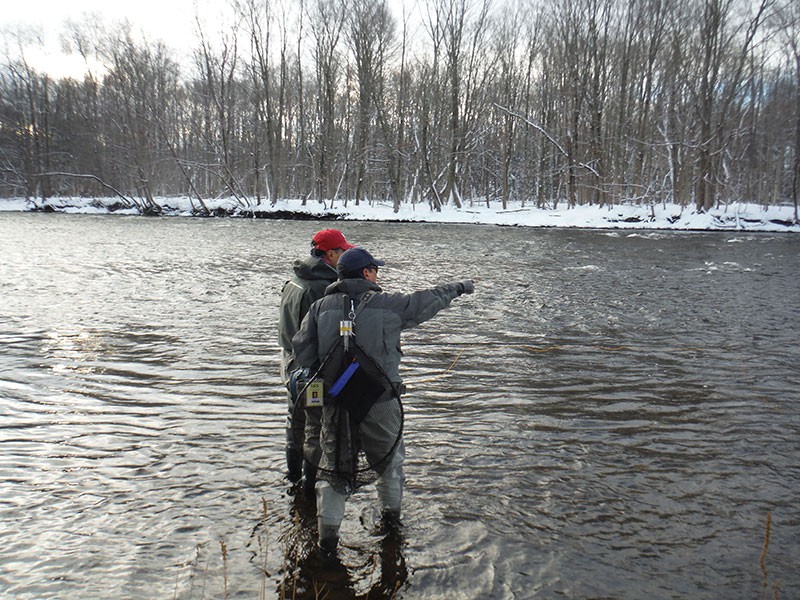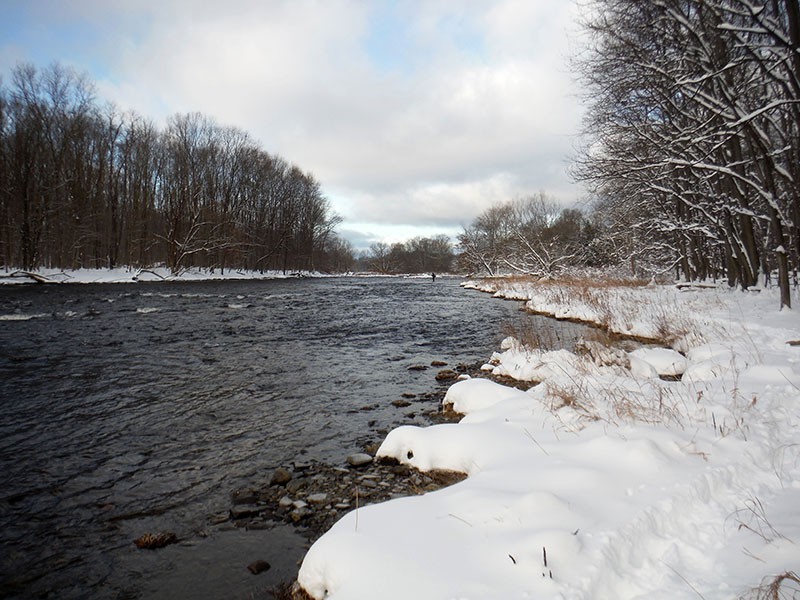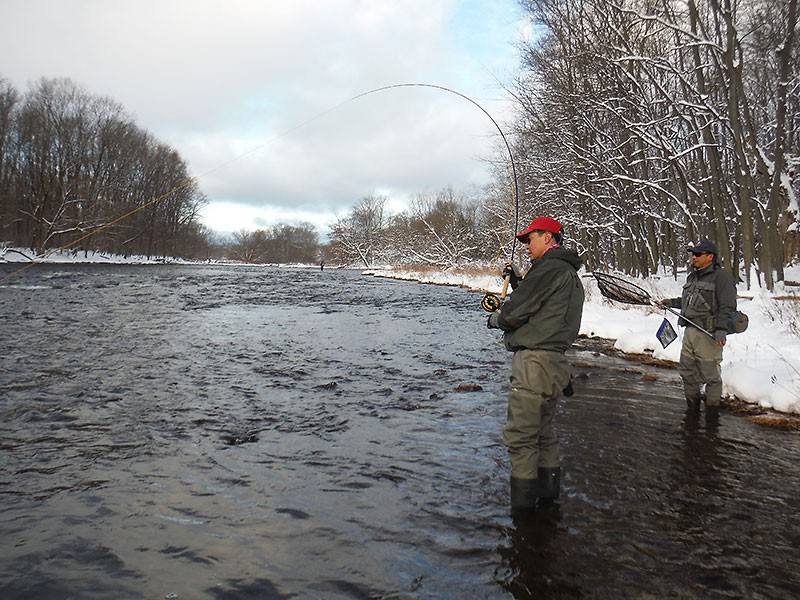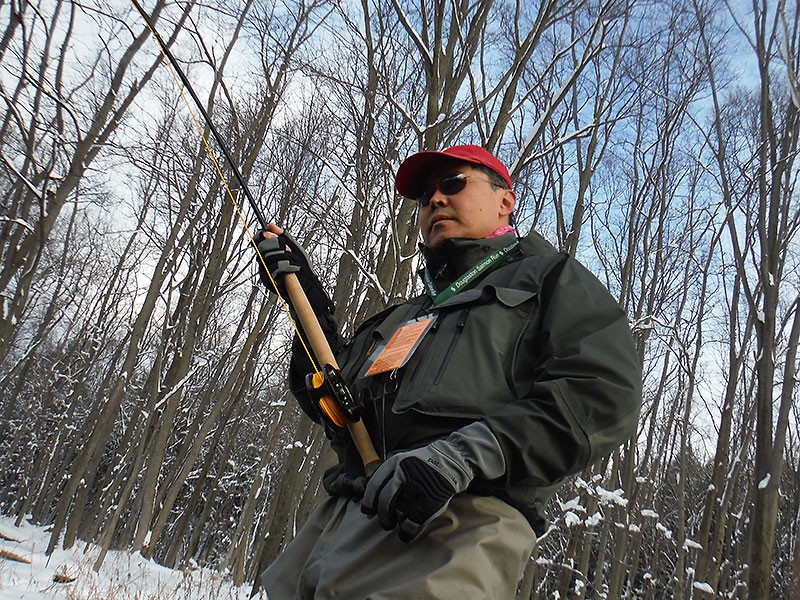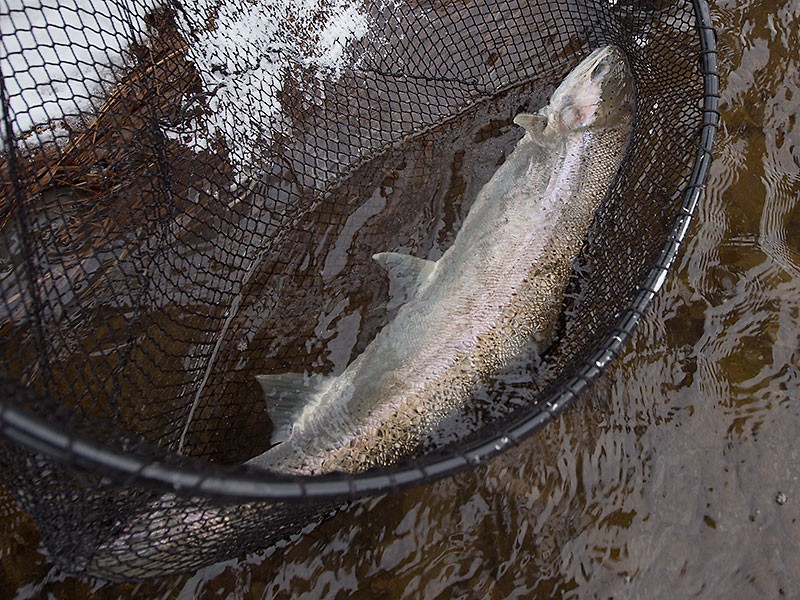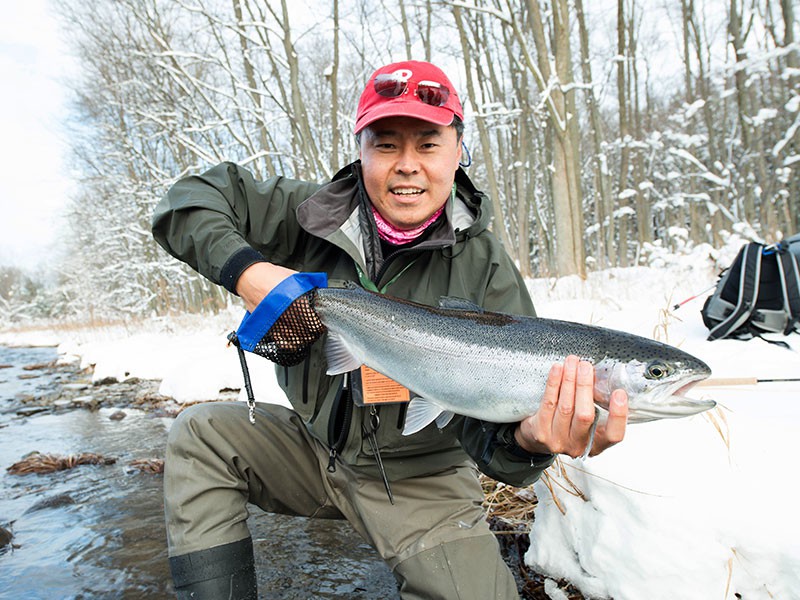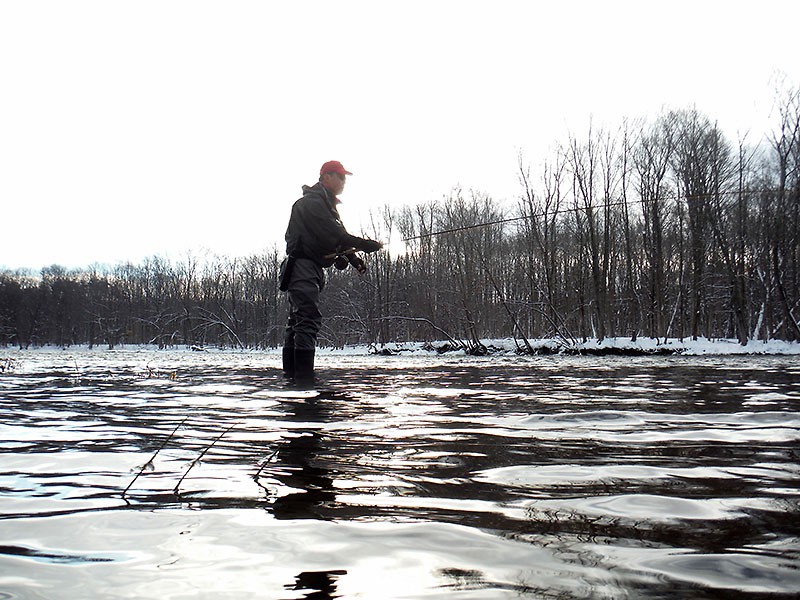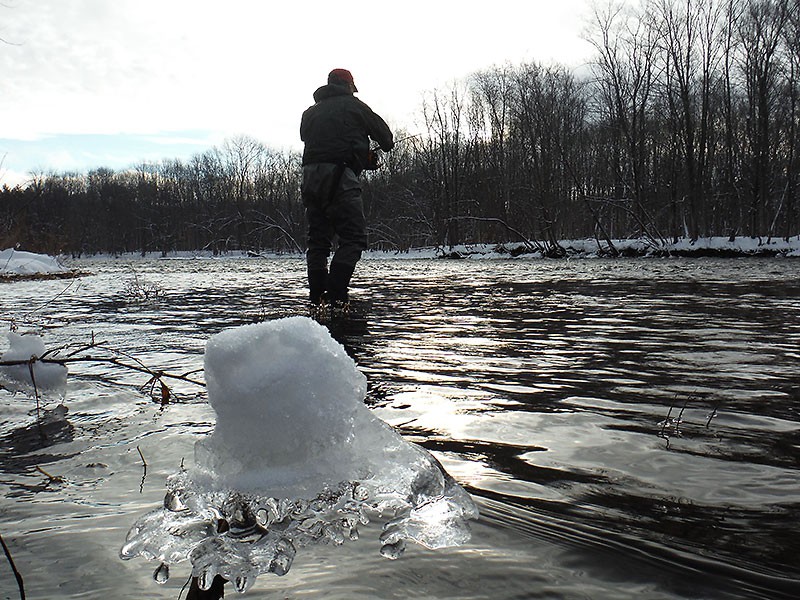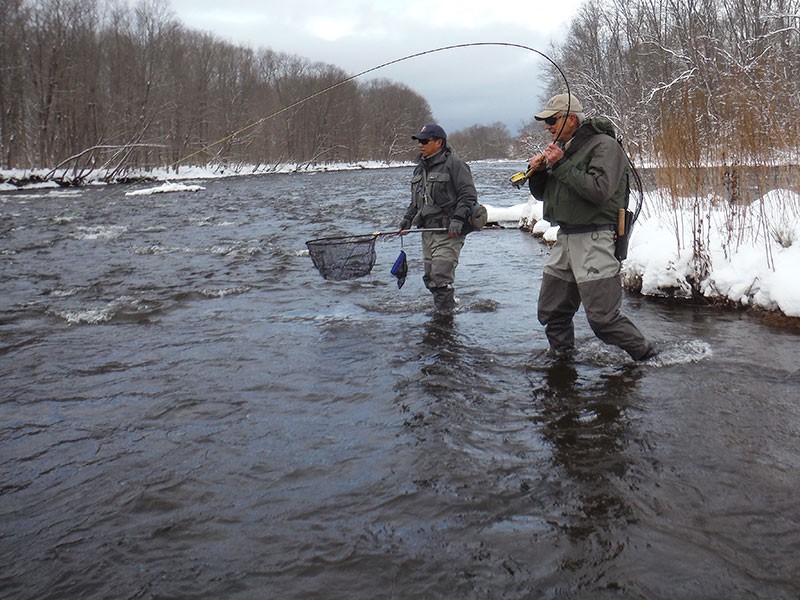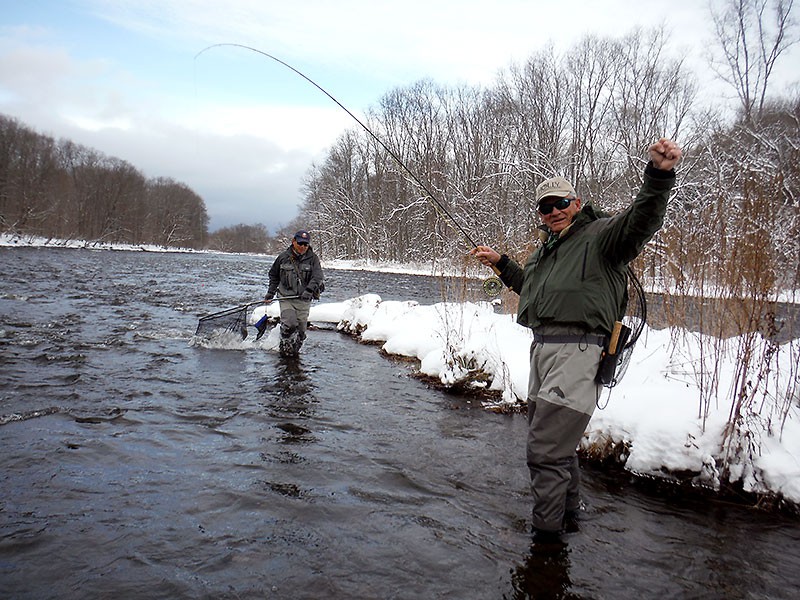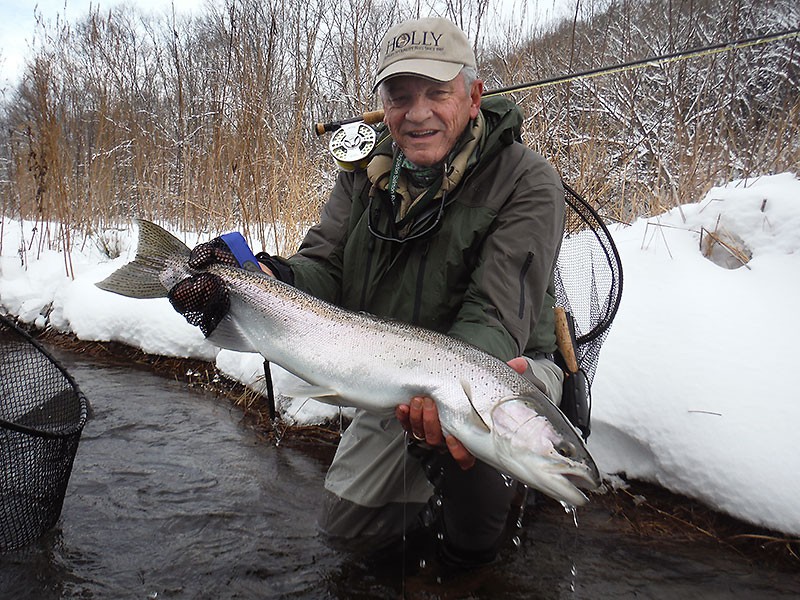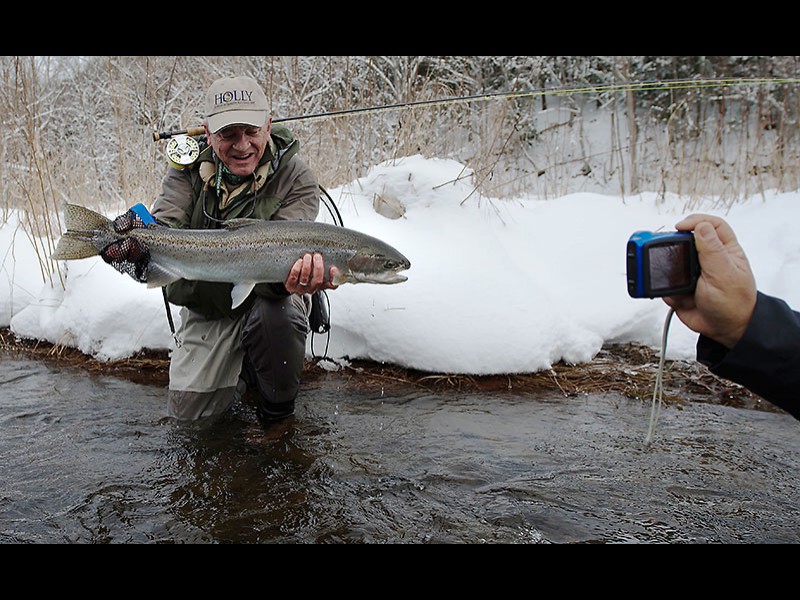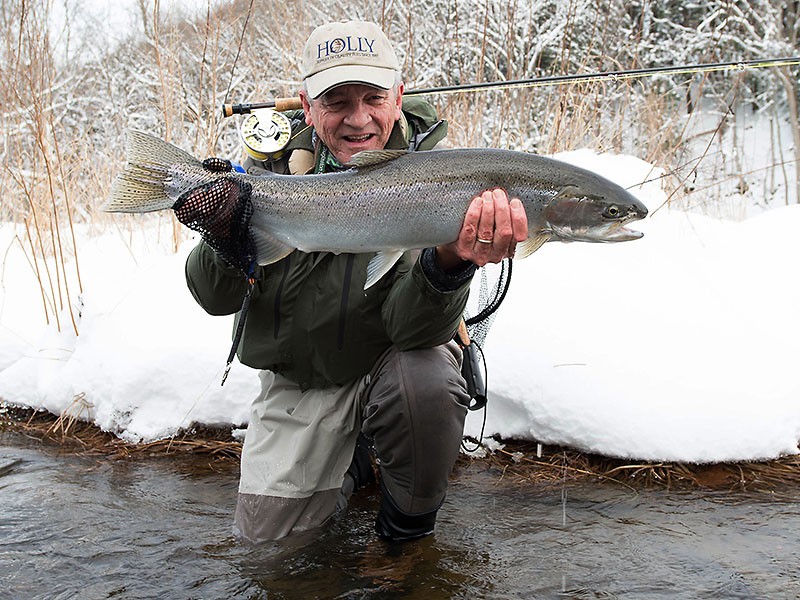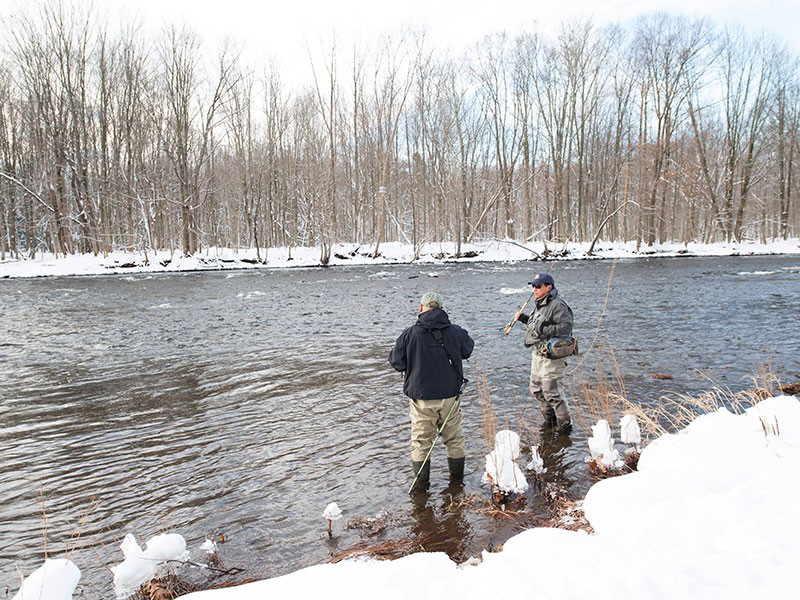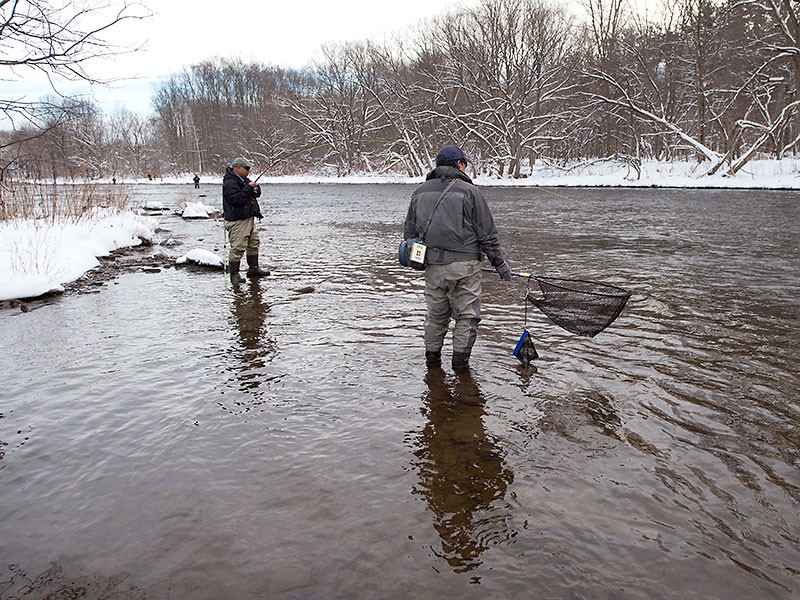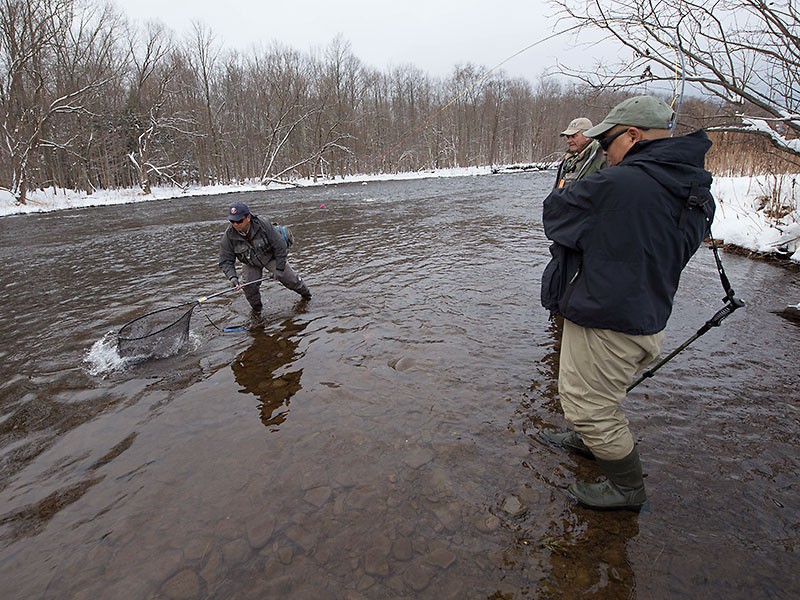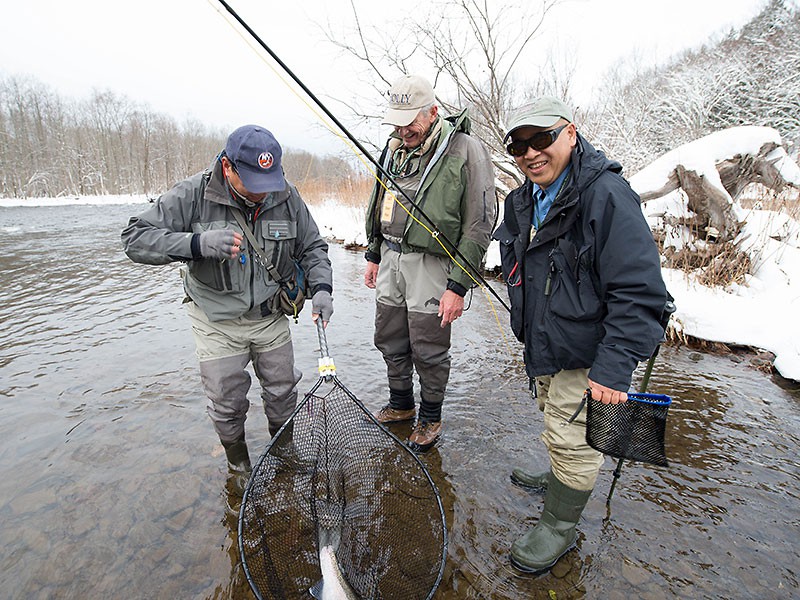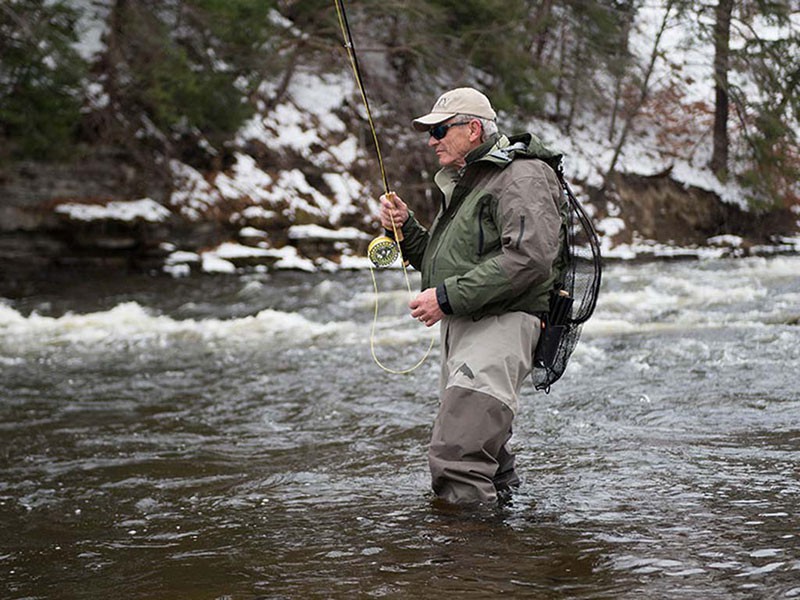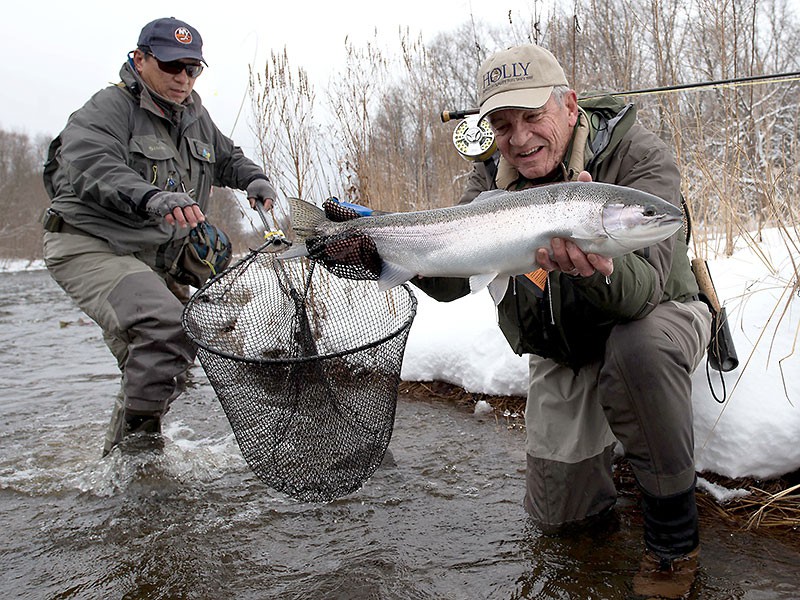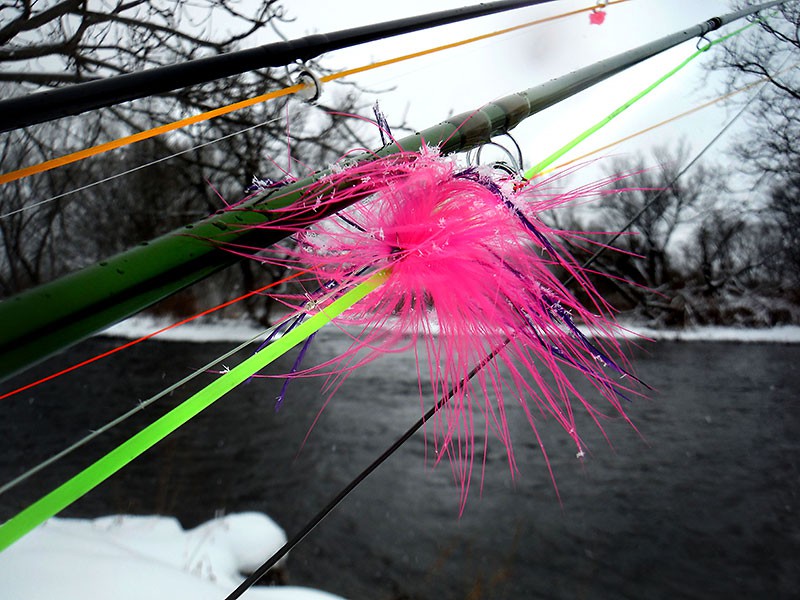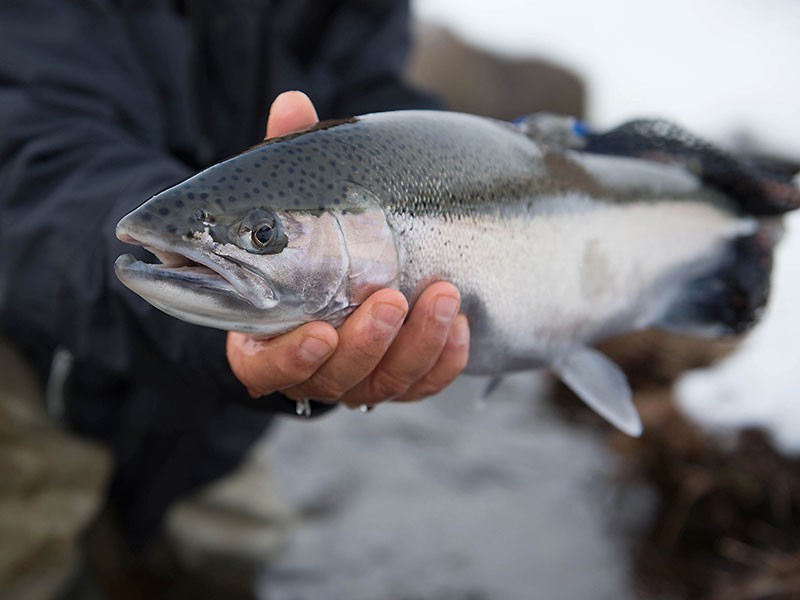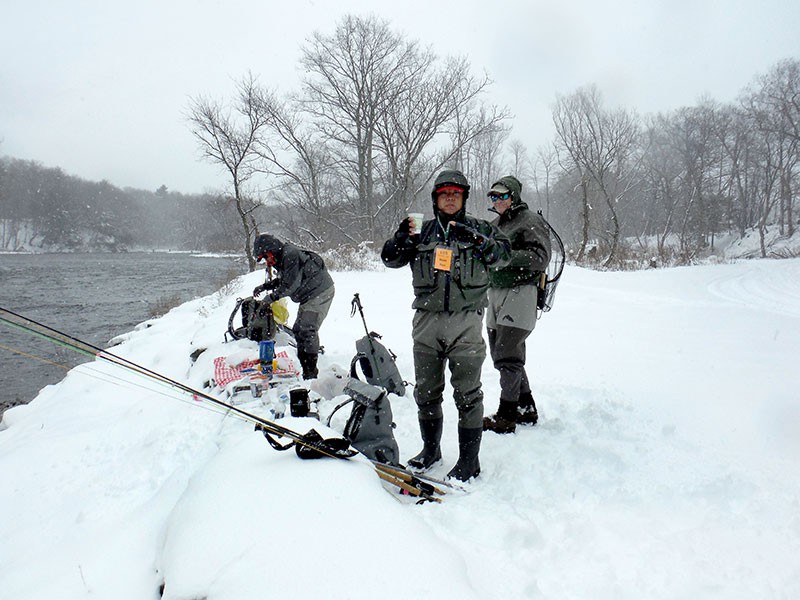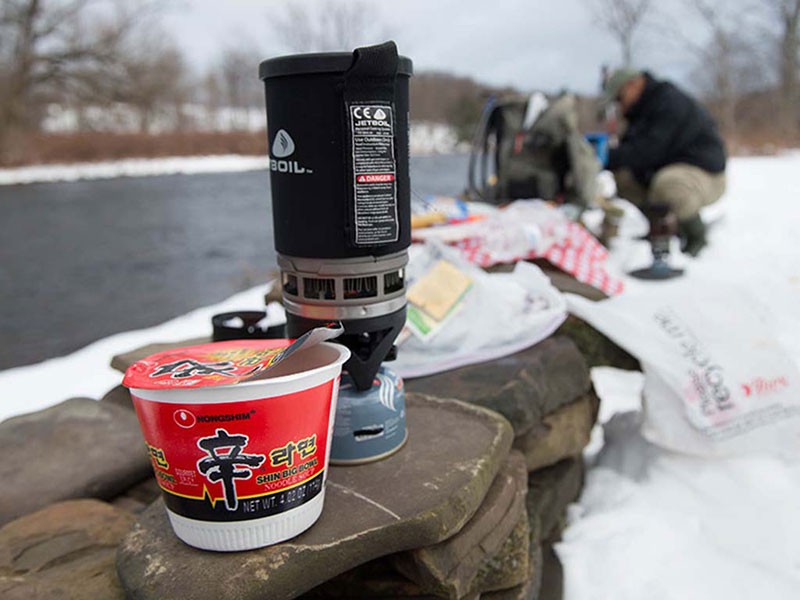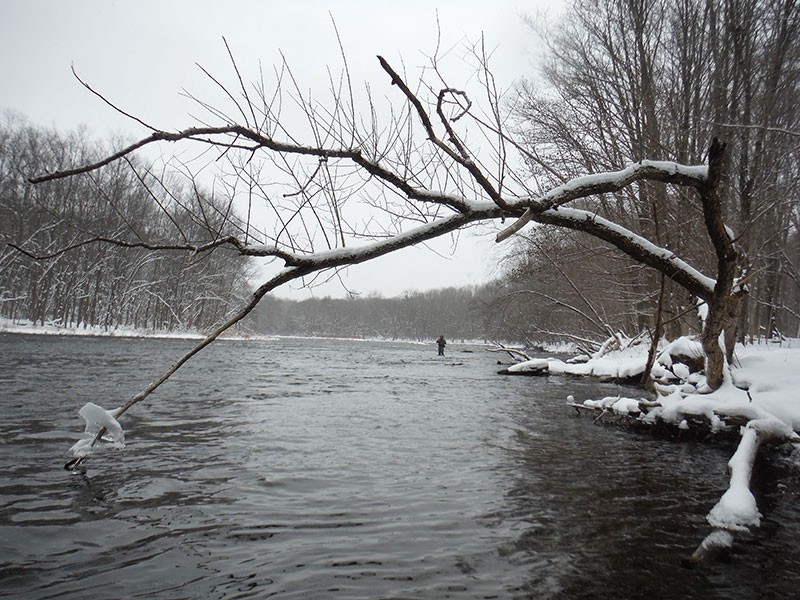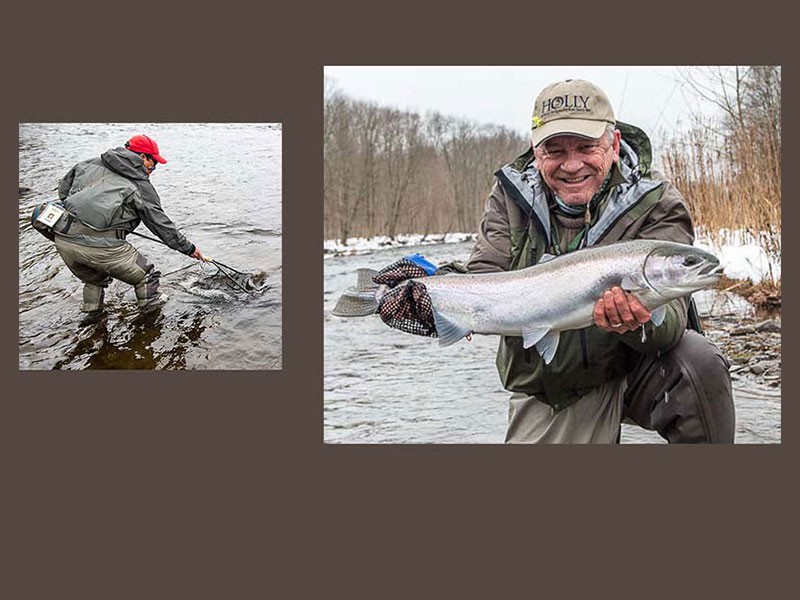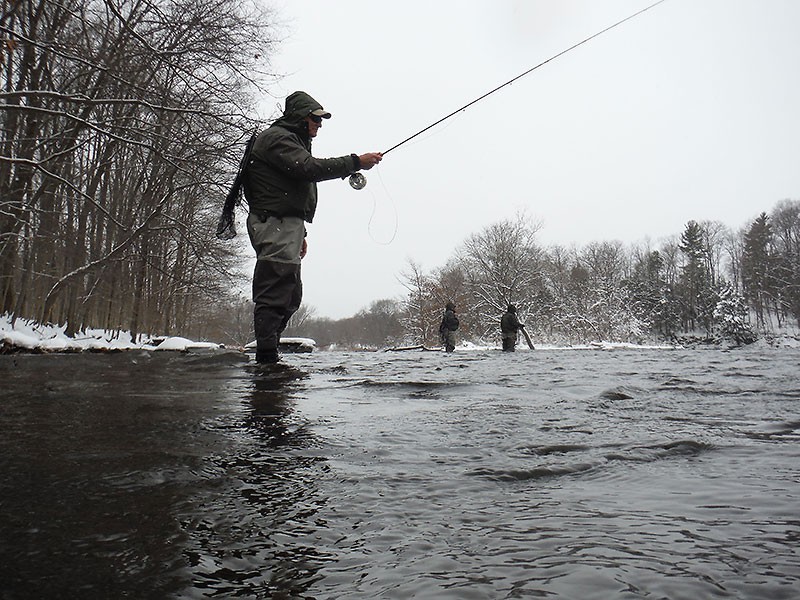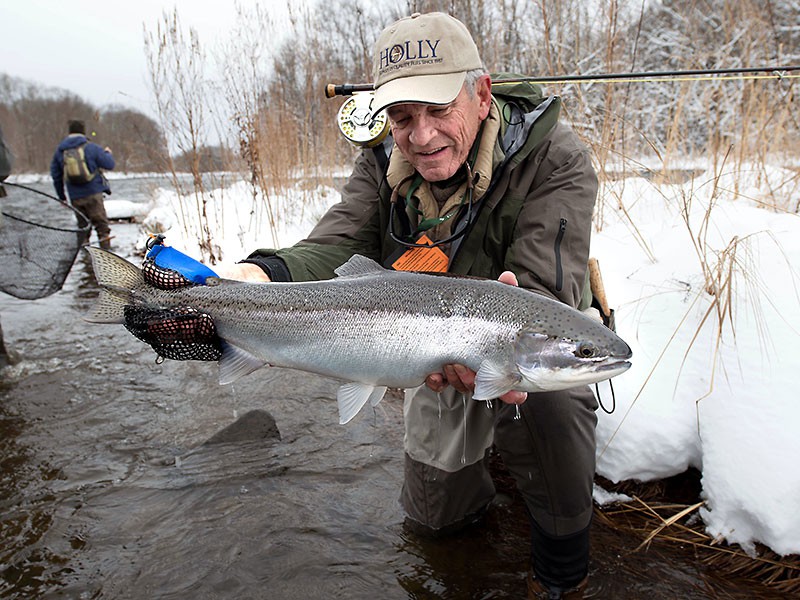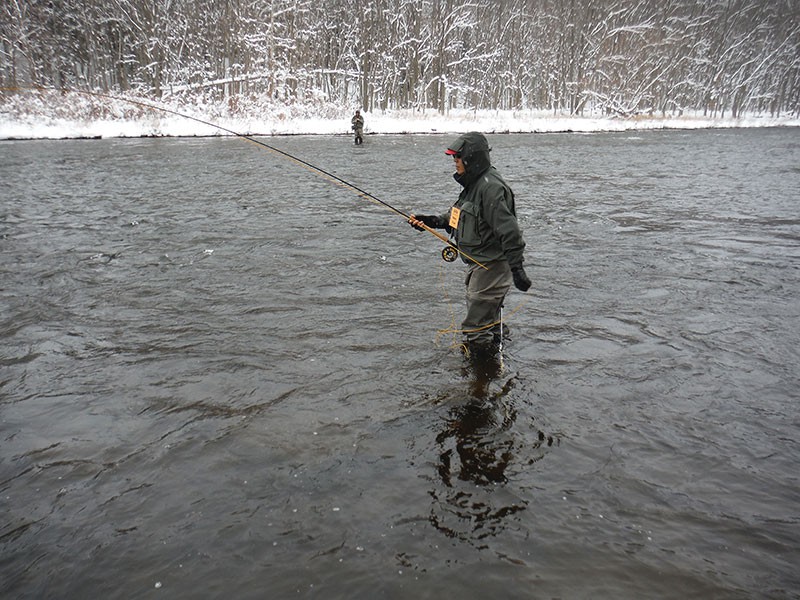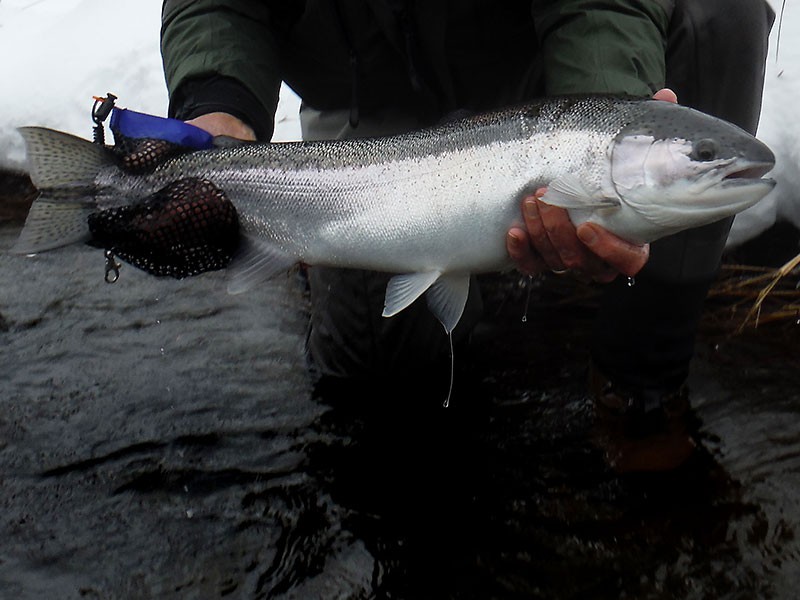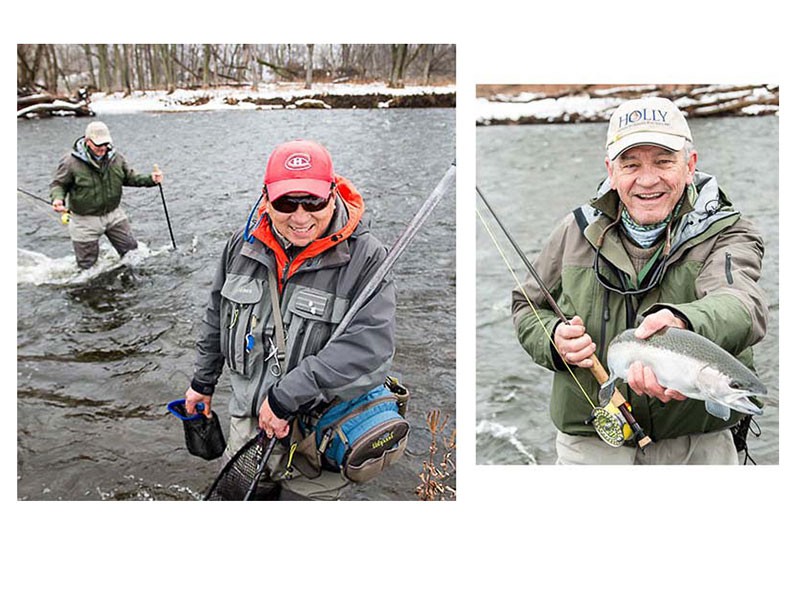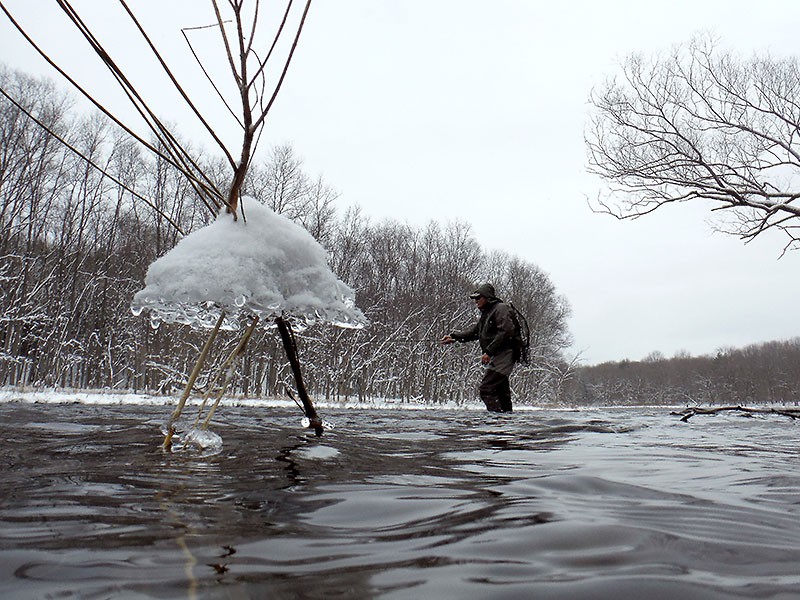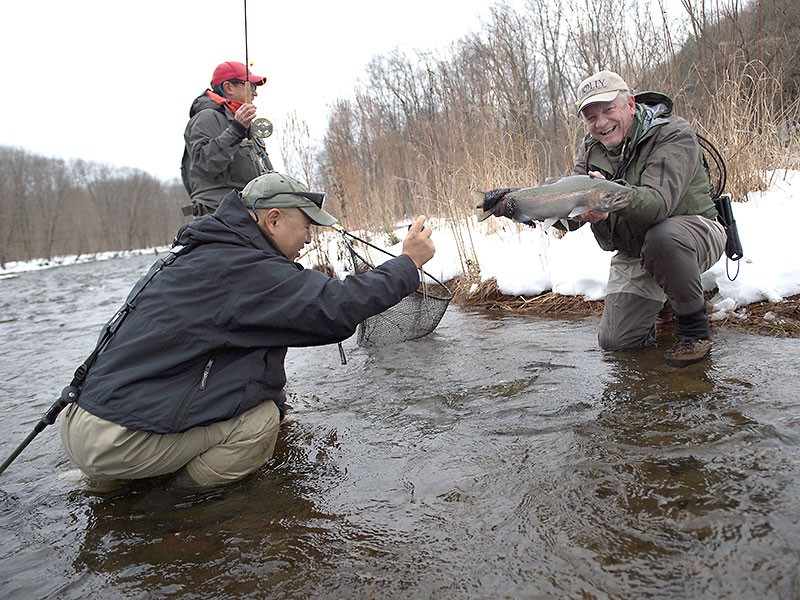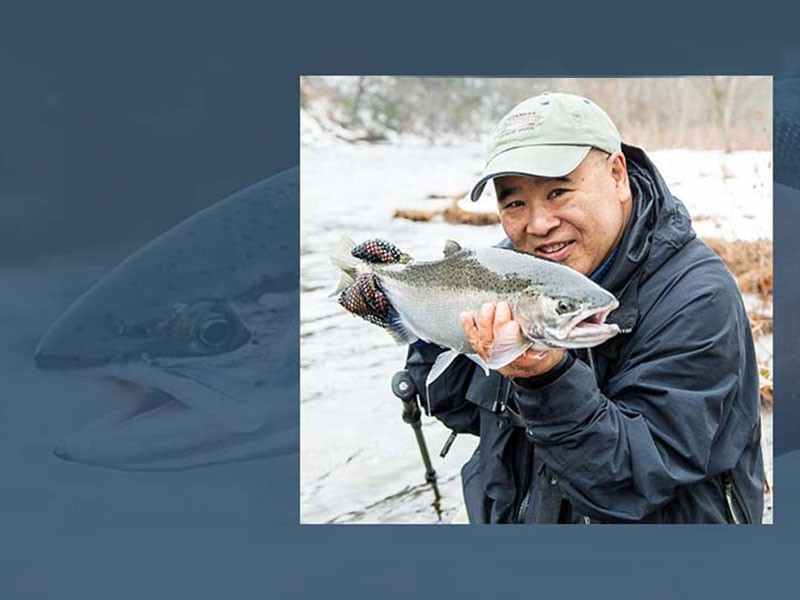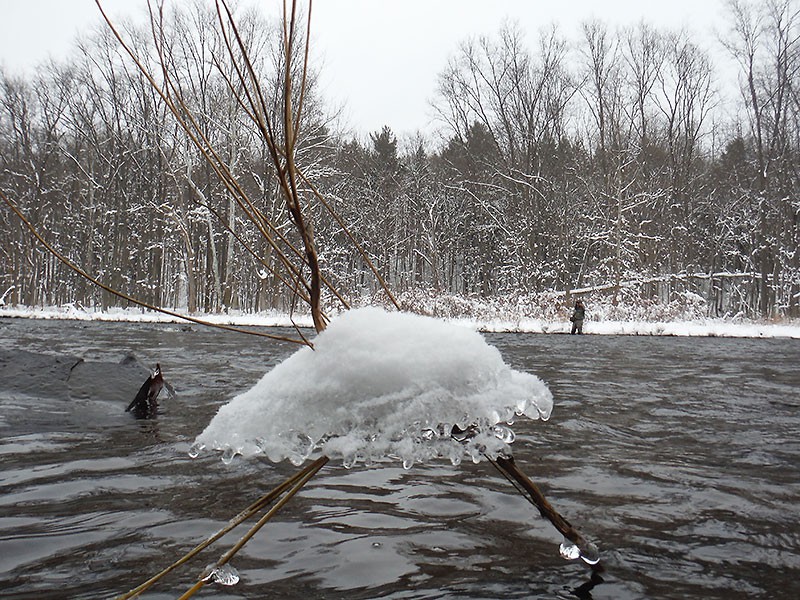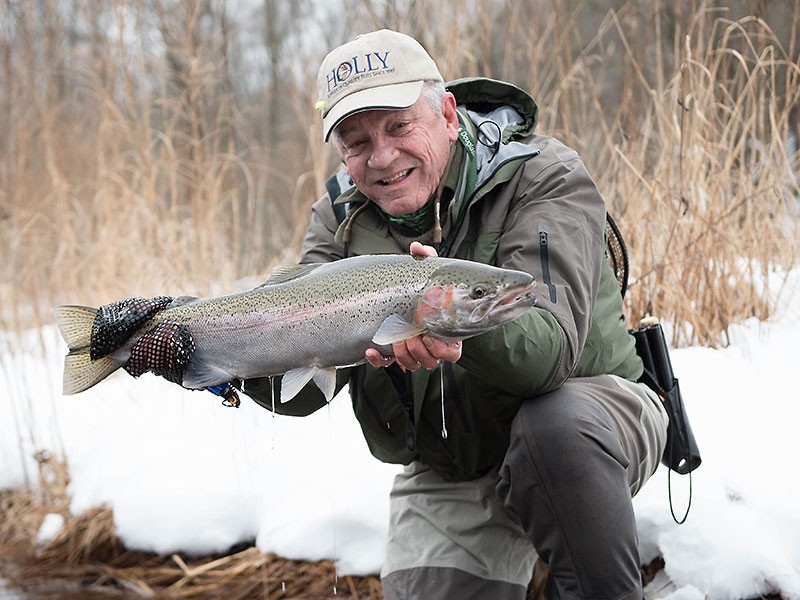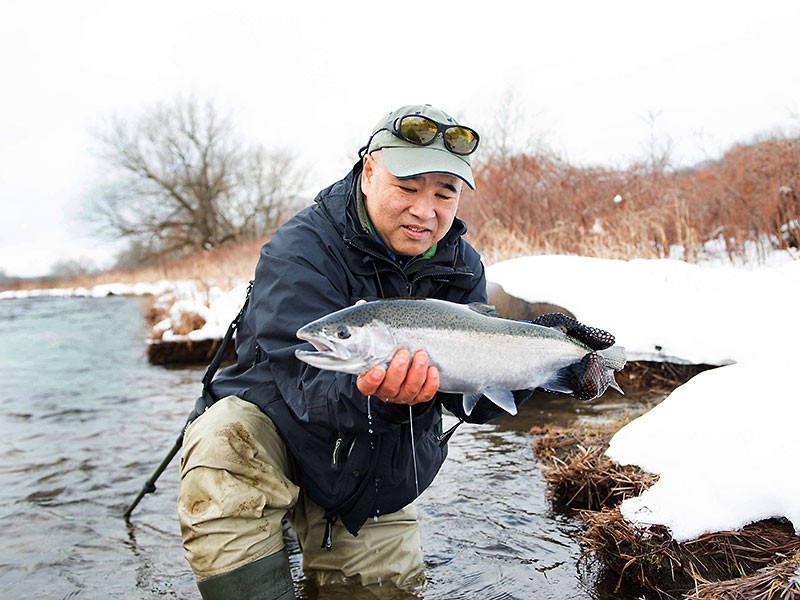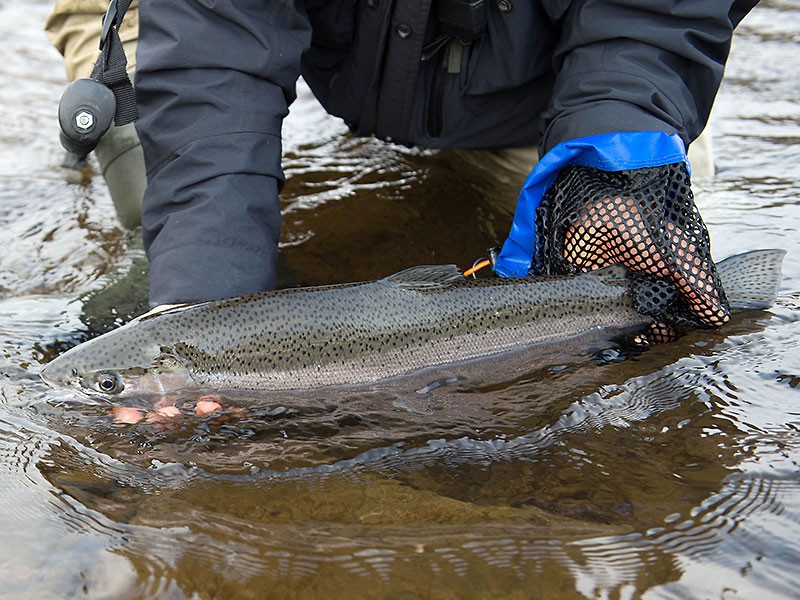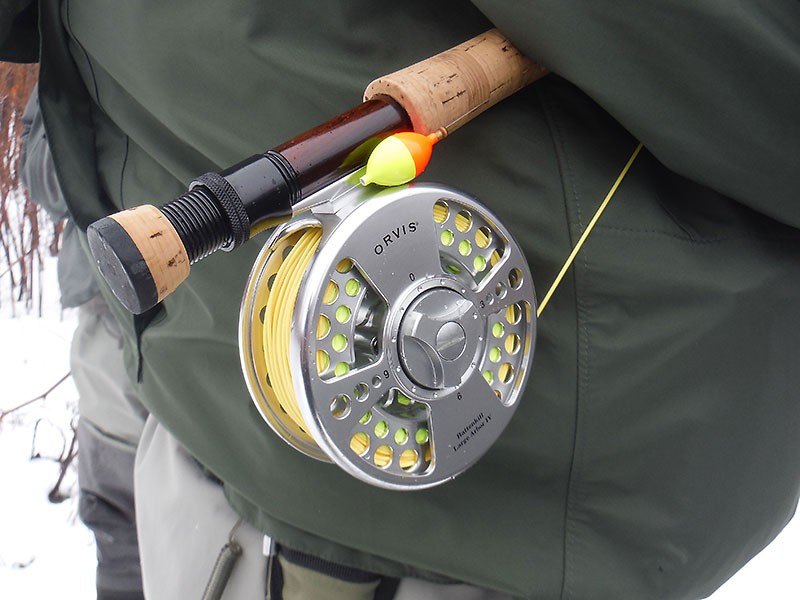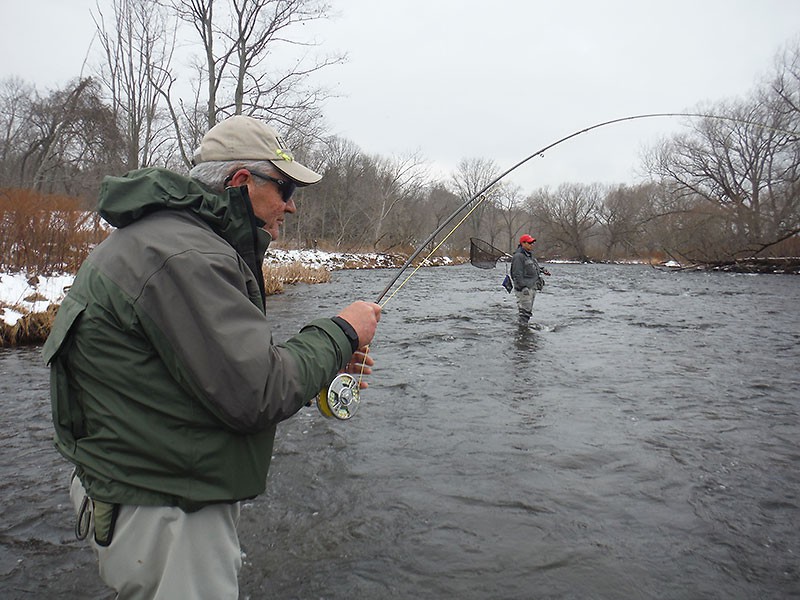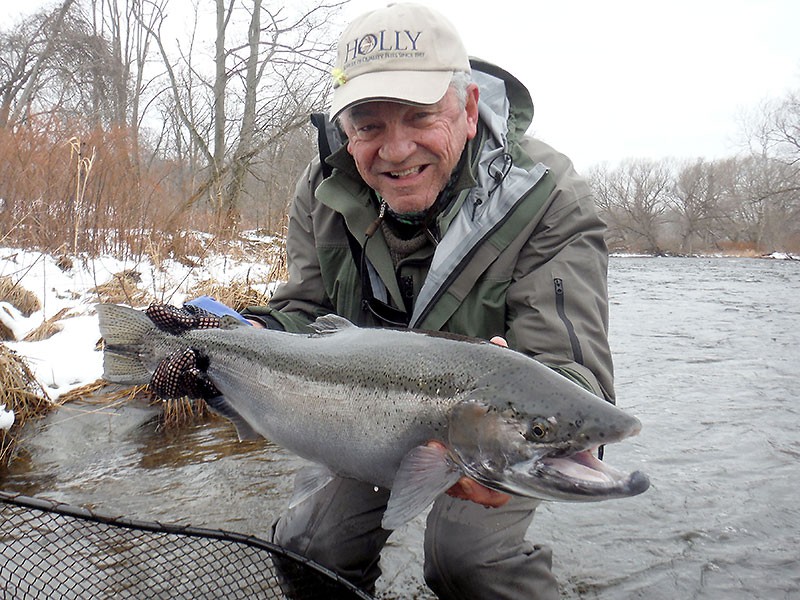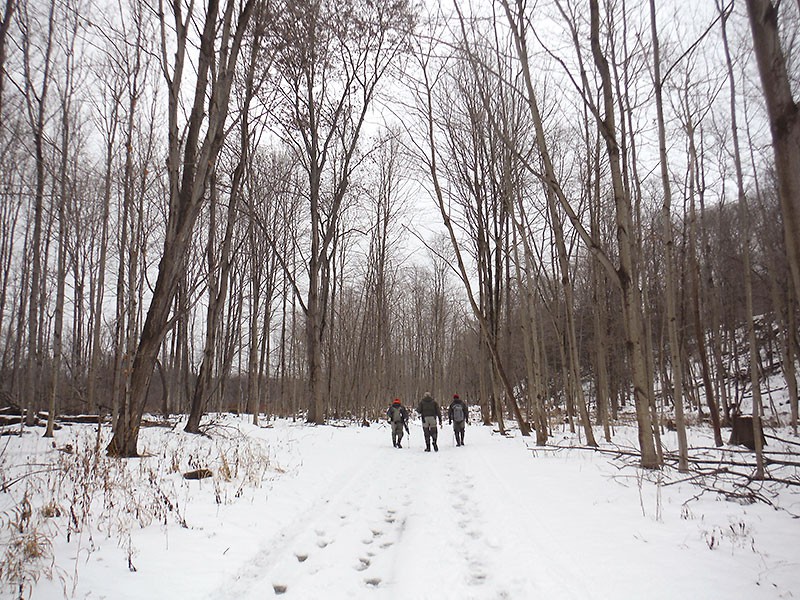Douglaston Salmon Run, New York, December 13-16, 2014
Unlike other types of fishing, when you’re going for steelhead in December “you have to pay attention on every cast” explained guide Greg Liu as I mended line through a deep bucket on the Salmon River at the Douglaston Salmon Run in scenic Pulaski, New York. “You can throw cast after cast without a pull,” he explained, “but the moment you look away--at the river or trees along the shoreline or to see what the other guys are doing--that’s when you WILL get a hit. You gotta pay attention.”
Painfully, I knew exactly what he meant. Cast after cast, mend after mend, and the once or twice I look away, whether it was at an interesting ice formation along the bank or checking out what the other guys were doing, there would be a momentary pause in the drift or dip on the indicator--a sure sign that I just blew it. Then there’s the Salmon River Stare. You’ve watched the line for so long that when you finally DO get a bite, your mind can’t believe it and you are slow to set the hook. By the time you jack the line, the steelhead has spit the hook and is long gone.
Tom and I were fishing with Jin and guide Greg Liu for a few days on the Douglaston Salmon Run. It was December and the salmon anglers that have packed the river from mid-September to early November have departed for the warmth of their homes. As my wife said, “Only crazy people want to stand in freezing water and snow to catch fish that they will throw back into the river.”
We have been fishing the Salmon River during November and December for many years so we know the angling can be tough. You can go for days without a hookup. We didn’t have high expectations, we were just glad to be there and fishing, which is as it should be. High fish numbers are nice and I wouldn’t be disappointed with a couple of nice ones but to me, fishing with good friends and have a great time makes the trip worthwhile.
On the first day, after getting all the kinks ironed out of our fishing rigs and putting all the gear in the right places, we took a short hike down the trail from the Douglaston parking lot and arrived at our first spot. We dropped packs and as Tom and I were getting our rods rigged, Jin scored his first steelhead on his third cast. After that fish was landed and released both Tom and I hooked and landed a steelhead. Before lunchtime, in about four hours, the three of us managed to either hook or land at least nine fish.
However the action slowed down after lunch but picked up late in the afternoon. This was a pattern that we repeated throughout the rest of the trip. Overall we hooked maybe 30 fish in four days and land about a third of them. Most of the lost fish were due to pulled hooks, tentative hook sets, break-offs (the ones almost at the net, where you see the fish, were awful) or angler error--like my having a fish on, then off, the tippet coming back with a curly pig-tailed end indicating I tied a poor knot.
Fishing conditions were pretty ideal. We had cold temperatures on the first day and a smattering of lake-effects snow. Nothing heavy, just a light dusting of heavy, wet flakes and some wind that made casting a bit difficult but not impossible. If you stripped too much wet line in and out of your rod the guides would freeze shut so we tried to use a fixed amount of line. Temperatures warmed up for the rest of the trip and a lot of the snow had melted away or was almost there by the time we left.
Several people asked me if I saw any dead steelhead in the river while I was here. Nobody in our party did during the duration of our trip but I understand that many were seen in November and scientists and fish and game officials are looking into the problem. There are several theories about what’s causing the problem, from gill lice to a vitamin B deficiency to low water flow, but nobody knows for sure yet. Some folks said that maybe the deaths are caused from the steelhead being hooked and released too many times as they make their way up the river to the spawning grounds. Could be true. It’s just as viable a theory as the other problems, especially after witnessing an angler play an ass-hooked steelhead past us. A person in our group pointed out the steelhead was ass-hooked but the sport said he wanted to land the fish because “it’s so pretty (female in spawning colors) I want to land it to get a photo.”
We brought and used different rods and techniques while fishing the river. Tom used a single-hand 10 foot rod for the entire trip while Jin and I used switch and spey rods for indicator fishing or swinging flies, depending on the area and water conditions. We used various lengths of leaders that terminated in either a tippet ring or small swivel, with nothing lighter than 3X (around 10 pound test) fluorocarbon at the terminal end. We fished a variety of flies--egg patterns, nymphs, streamers and tube flies depending on the area and water flow. And we used a variety of standard, spey and switch rod fly lines from Airflo, Rio and Orvis.
